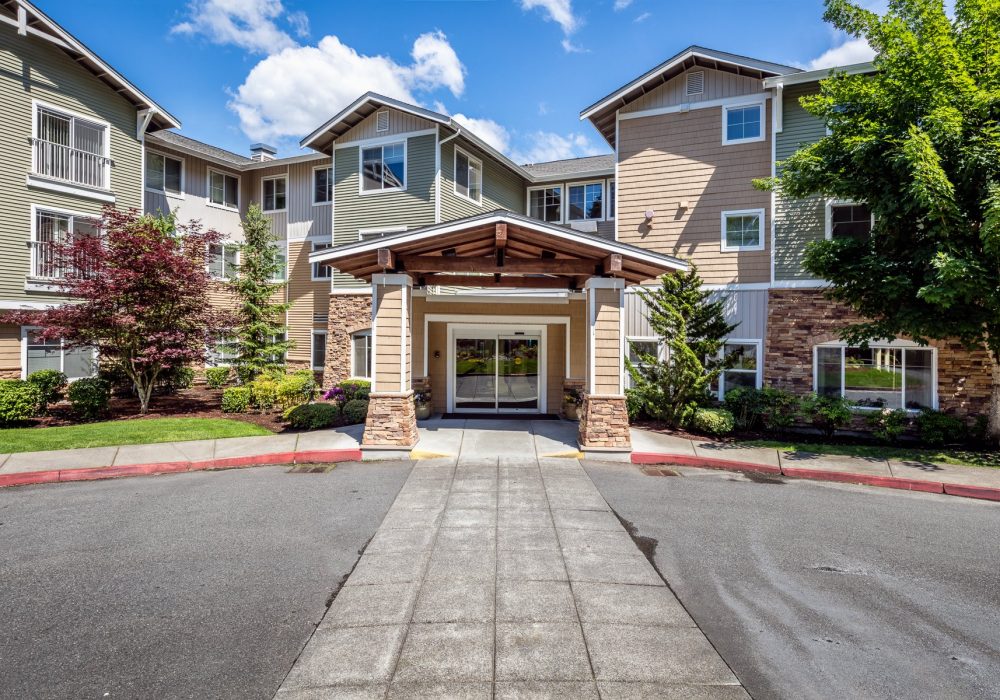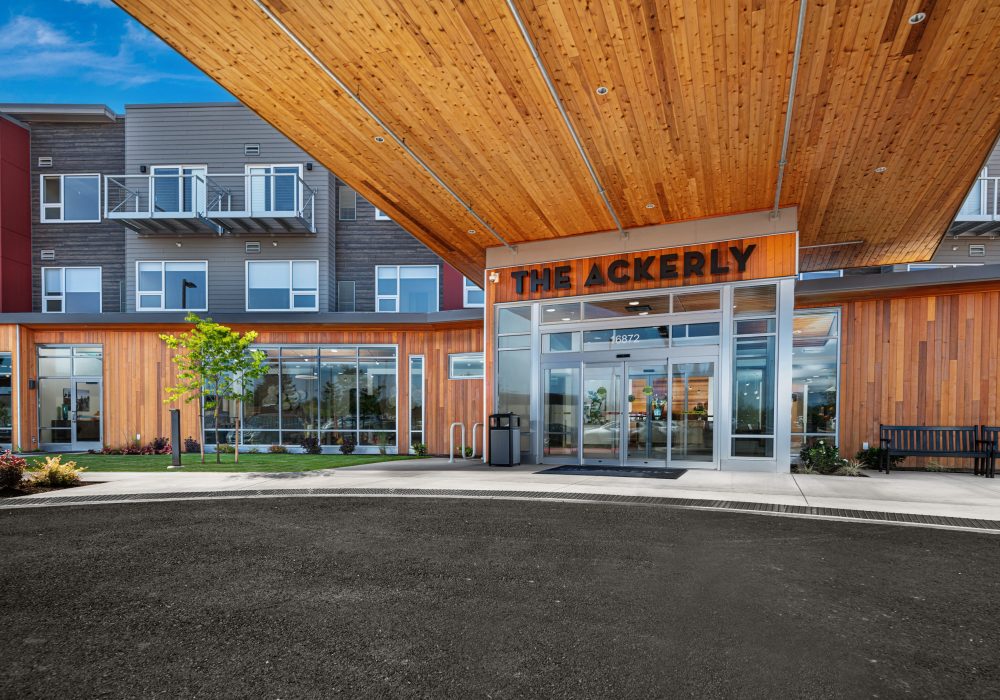
Most seniors want to stay in their homes as they age. Moving comes with both physical and emotional stress, and many seniors are afraid of leaving behind beloved neighbors and a family home full of memories. Add the fear of the unknown to those concerns and a move to senior living can be downright overwhelming. However, the truth is that for many seniors living at home alone can be unhealthy and even dangerous.
Learn more about why seniors want to stay in their homes and how a move to senior living can help improve quality of life, even for seniors who are reluctant to move at first.
5 Reasons Seniors Want to Stay in Their Homes
According to a survey from the AARP, approximately 90% of seniors intend to stay in their current homes for the next five to ten years. Of those that plan on staying in their homes, 85% believe they could do so without making significant modifications to their home. At the same time, many of the survey respondents reported that it was becoming increasingly more difficult to live independently. In fact, only 43% of respondents over 70 found it “very easy” to live independently. Thus, despite the challenges that come with living alone, many seniors still want to live in their homes.
Every senior is different and has a unique set of reasons for wanting to stay in their homes, but these five reasons are commonly cited by seniors who are hesitant to move into senior living.
Experience Leisure Care Senior Living
1. The physical stress of moving
For many seniors, moving out of a family home means sorting through decades of keepsakes and possessions. Even if families hire a moving service, friends and family will still need to go through these items and arrange for an estate sale or storage options.
2. The fear of losing independence
It’s a common misconception that moving to senior living means a loss of independence. Today’s senior living communities have evolved from care facilities to places that encourage and empower residents, but it can be hard to change existing perceptions.
3. Anxiety over leaving a community
A move to senior living may mean changing decades-old routines, and some seniors may worry that a move will further isolate them from friendships that have lasted their entire life.
4. Emotional ties to the family home
A house is just a house, but a home is something to be cherished. Leaving a physical structure that has encapsulated decades worth of memories and is the backdrop to family holidays and reunions can be emotional.
5. The fear of the unknown
More than anything else, the fear of the unknown can keep seniors in their homes and often in an unsafe environment. Seniors just don’t know if a move to senior living will be worth the physical and emotional stress of it all. They worry about losing valuable relationships and feeling left out of future family functions and friendly gatherings.
7 Ways Senior Living Can Improve Quality of Life
These concerns are powerful and valid. Moving is sure to be physically and emotionally stressful. The good news is that for many seniors, moving to senior living is a very positive experience and can improve quality of life while also fighting against senior isolation. While the initial reaction to moving may be negative, seniors become increasingly lonely and with age comes difficulty completing basic tasks necessary for independent living.
A study from the University of California San Francisco (UCSF) found that adults over the age of 60 who reported feeling lonely saw a 45% increase in their risk of death. Additionally, respondents who reported being isolated were 59% more likely to experience mental and physical decline – especially in the area of activities of daily living – than their more social counterparts.
Moving to senior living can fight feelings of loneliness and senior isolation and improve the quality of life. Here are 7 ways that moving to senior living can improve the quality of life for seniors.
1. Stop worrying about home maintenance or yard work
A move to senior living means that home maintenance and yard work completely go away. Regular and emergency maintenance is just a phone call away and today’s senior living communities feature stunning gardens and landscaping – without your loved one every lifting a finger. This can also improve safety and keep seniors off ladders and away from power tools that may no longer be safe to use.
2. One monthly bill for most expenses
Senior living is largely all-inclusive so residents and their families do not have to worry about keeping up with monthly bills. Before a move to senior living, many family members report seeing bills piled up around the house and receiving calls from utility companies requesting payments. That is usually taken care of for residents in senior living with one monthly rent check.
3. Nutritional food served on demand
Maintaining proper nutrition is crucial to aging well. Seniors who live alone may find they prioritize convenience over nutrition, become under or malnourished. Senior living communities often have chefs who are trained in senior nutrition and offer a wide range of meal choices able to meet specific dietary requirements.
4. Five-star amenities close to home
Today’s senior living communities are often more like resort-style vacations. Offering fitness classes, language classes, travel agents, a variety of community clubs, and ways to get involved and engage with others – all without ever leaving your home. No more worrying about traffic or whether to drive to your book club. Continue doing everything you love, or even find a new interest, without leaving home.
5. Develop meaningful relationships with people who have similar interests
Through community amenities, many residents find new friends who share similar interests. These connections are made stronger by living near each other and friendships in senior living are often very strong and meaningful.
6. Reduced tension in family relationships
Moving to senior living changes the dynamic of family relationships. Adult children have increased peace of mind knowing their loved one is being cared for and looked after by a trained staff. They are able to resume their role as the child, instead of worrying about an aging parent.
7. Increased feelings of safety
Senior living apartments often have emergency response systems, and some even offer residents the option to wear alarm pendants. This can help alleviate fears from falling and becoming left for hours or days – a concerning situation that is all too common for seniors living alone.
Have you or a loved one made a move to senior living? Are you happy with your decision to move to community living? Share your experiences with us in the comments below!
Find a Leisure Care Community
Better with age, exceptional with us! Come and see how Leisure Care communities are helping seniors rediscover (and sometimes reinvent) themselves.





